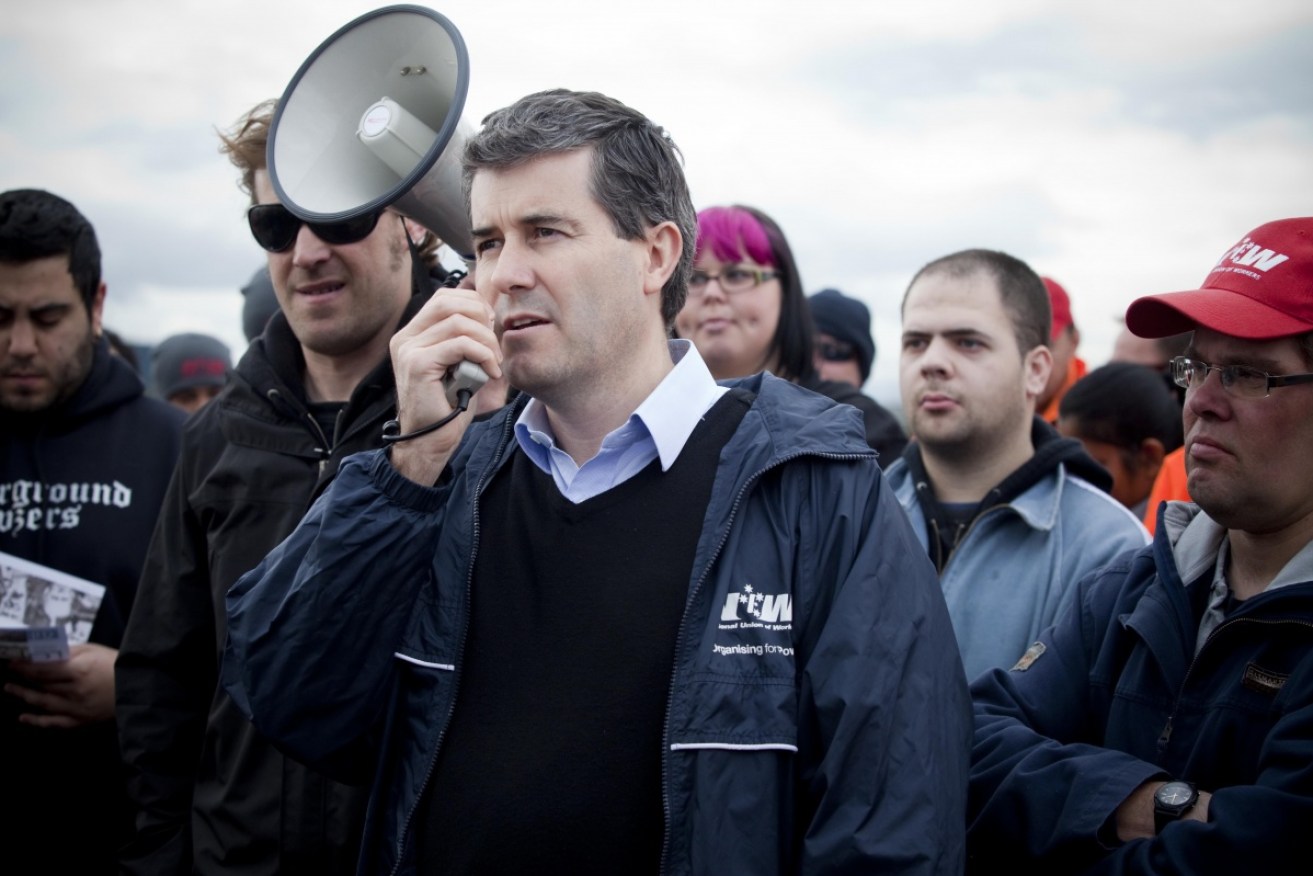Union chief: ‘loophole’ lets bosses change rules ‘whenever they want’

Tim Kennedy says labour laws must be overhauled to close the widely exploited "loophole" of subcontracting. Photo: Arsineh Houspian
Bosses have so heavily exploited the “loophole” of employing workers indirectly that Australia’s enterprise bargaining laws are effectively redundant, a senior union leader has warned.
Tim Kennedy, national secretary of the National Union of Workers, said the balance of power in workplace-specific negotiations has shifted “too far” in favour of employers because the Fair Work Act “hasn’t kept up” with the rise of subcontracting and labour hire.
“The root cause is that enterprise bargaining as understood by the current laws is no longer meaningful because corporations have changed the way they engage up to half the workforce,” Mr Kennedy told The New Daily.
“These workers have no right to secure employment, no right to negotiate pay in the meaning of bargaining under the Act, and they have no protection under the Act.
“Employers can change the rules whenever they want.”
Most (43 per cent) Australian workers were employed under ‘collective bargaining’, a category dominated by enterprise bargaining agreements (EBAs), according to official data from May, 2010. ‘Award only’ employees, who are paid under industry-specific awards, accounted for only 15 per cent.
The same survey repeated in May 2016 grouped ‘award’ and ‘collective bargaining’ together and found these accounted jointly for 59.2 per cent of all employees.
EBAs were envisioned as a way for employers to negotiate directly with their full-time workforce instead of relying on industry-wide agreements ill-suited to their specific needs. However, Mr Kennedy said many employers use the “loophole” of indirect employment to pervert the intent of the Act.
They do this by negotiating EBAs before workers are hired, he said.
“All the employer needs is a number of employees that they handpick and are compliant with what the employer wants and they can negotiate with those people and then, the day after its ratified by the Fair Work Commission, the employer can then employ a whole lot of people under the terms of that agreement, effectively locking people out of the right to collectively bargain.”
If employers don’t like the terms of an EBA, they can simply contract with a labour hire company that has pre-agreed less generous terms, he said.
“The reality is that these agreements are not closed in the sense that the employer can walk away from them the day after they are made by changing the model of how they operate their site.”
Employers can also use a loophole in the Act to terminate EBAs they don’t like, Mr Kennedy said.
“We see it playing out at the other end of the spectrum where employers who don’t get what they want in a negotiation phase are now using a device in the Act to terminate agreements and take people’s terms and conditions they’ve built up over many, many rounds of bargaining back to the minimum award standard.”
Worker power has been further eroded by “bureaucratic red tape” on the right to strike and through restrictions on what matters (such as demands for full-time status) can be negotiated in EBAs, Mr Kennedy said.
“There needs to be a complete revisiting of labour law regulation in this country that recognises that the balance in favour of employers has gone too far, that people need the right to collectively bargain and workers need to have a say in what that bargain looks like.”
In contrast, the Australian Industry Group describes EBAs as “a significant opportunity to tailor the terms and conditions of employment to suit [an employer’s] business needs” that can yield benefits of “greater flexibility … greater efficiency, better functioning workplaces and improved productivity”.
The UN’s International Labour Organization has recognised that workers have a right to freedom of association (including a right to strike, except in limited circumstances) and collective bargaining.
In response to questions from The New Daily on whether Australia has breached these rights, the ILO headquarters in Geneva directed us to its most recent report.
It called on the Australian government to “review” the Fair Work Act’s constraints on the content of EBAs to bring it “into accordance” with ILO rights; and to “review” the Fair Work Act, consumer law and the Crimes Act “with a view to bringing them into full conformity” with the ILO’s qualified right to strike.








